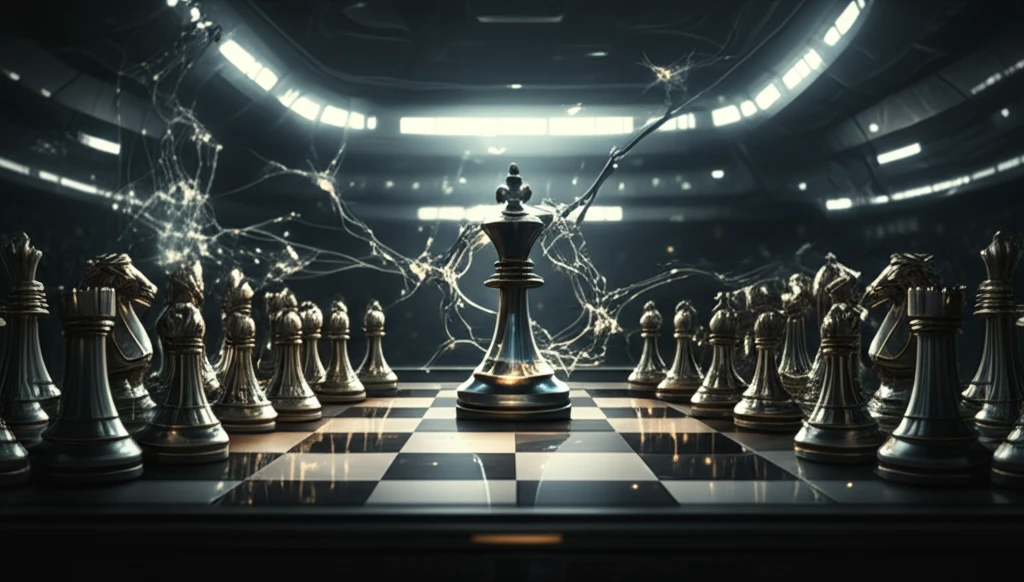
Beyond the Score: How AI Is Redefining Intelligence in Games (and What It Means for You)
"Uncover the groundbreaking ways artificial intelligence is measuring and changing our understanding of human and machine intellect in competitive arenas."
For centuries, we've measured intelligence through standardized tests, academic achievements, and professional success. But what if we could quantify intellect in the heat of competition, in the strategic depths of a game? Thanks to advancements in artificial intelligence, this is becoming a reality. A new wave of research is using AI to analyze gameplay, assign intelligence scores, and ultimately redefine what it means to be 'smart' in a competitive environment.
Imagine an AI that not only plays chess but also evaluates the strategic ability of each player, move by move. This isn't just about who wins or loses; it's about understanding the 'why' behind each decision, quantifying the mistakes made, and assessing the overall quality of play. This is the essence of 'Game Intelligence' (GI), a concept that's transforming how we perceive intellect in games and beyond.
This article delves into the fascinating world of AI-driven intelligence measurement in games. We'll explore the groundbreaking research that's making this possible, examine real-world applications (chess, anyone?), and discuss the profound implications for how we understand both human and machine intelligence. Whether you're a strategy enthusiast, a tech aficionado, or simply curious about the future of intellect, prepare to have your perspective challenged.
Game Intelligence (GI): Quantifying the Art of Strategy

At the heart of this revolution lies the concept of Game Intelligence (GI). Unlike traditional metrics that focus solely on outcomes (win, lose, draw), GI takes a more holistic approach. It considers a range of factors, including:
- Game Outcome: Was it a win, loss, or draw?
- Opponent Strength: Who were they playing against?
- AI Oracle: How does a powerful AI evaluate the moves made?
The Future of Intelligence: Games as a Testing Ground
The advancements in AI-driven intelligence measurement in games represent a significant leap forward in our understanding of intellect. By providing a framework for quantifying strategic ability and decision-making prowess, this research has implications far beyond the virtual world. As AI continues to evolve, games will serve as a crucial testing ground, pushing the boundaries of what's possible and challenging our long-held assumptions about intelligence, both human and artificial.
